How to Stay Hydrated Every Day? 7 Tips on Preventing Dehydration
It’s essential to keep hydrated, especially in sweltering summer. How to stay hydrated? It should be easy, but research concluded that 3 out of every 4 Americans are chronically dehydrated. Luckily, there are many ways to avoid dehydration. Here are the best ways you should know.
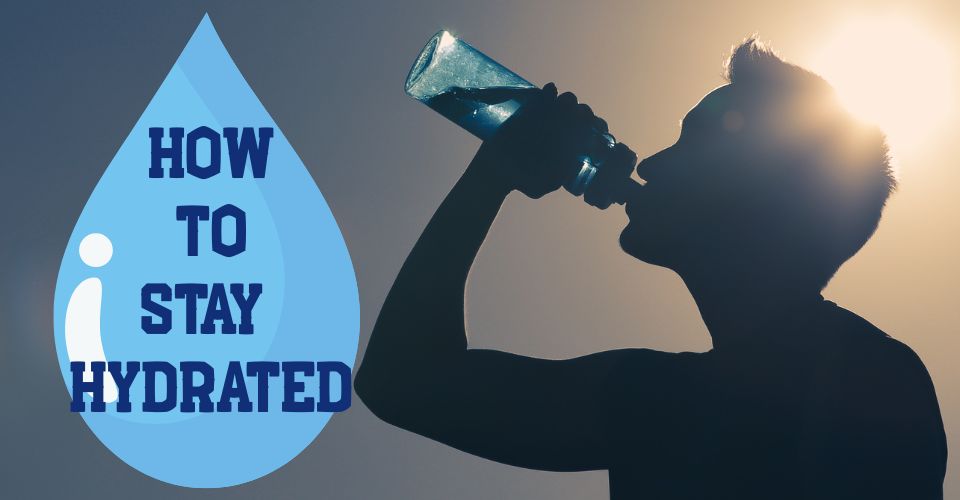
How to keep hydrated
Why Hydration is Important
The human body contains 50 -60% water. When the body is not hydrated enough, almost all inner parts will not work effectively.
That’s why drinking enough water every day is essential. It improves bodily functions, such as:
-
Brain function: Improving cognition and lowering anxiety.
-
Circulation: Preventing the heart from overworking and boosting overall heart health.
-
Detoxification: Aiding in the removal of waste from the body through urine and sweat.
-
Digestion: Making bowel movements easier and more regular.
-
Metabolism: Helping you maintain a healthy weight.
-
Temperature regulation: Preventing the body's natural tendency to conserve heat when dehydrated.
-
Kidney: Staying hydrated can help disperse the concentration of minerals in your urinary tract, making stones less likely.
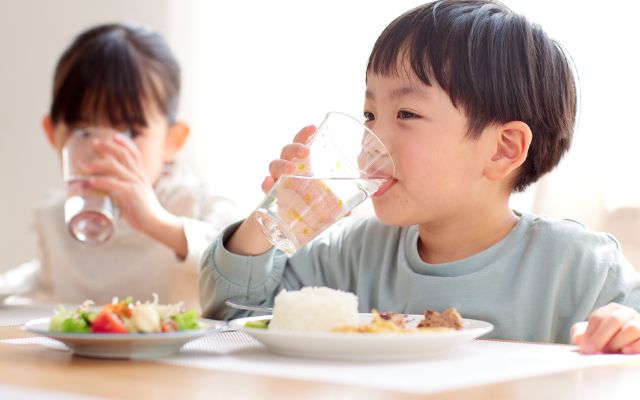
Keeping hydrated daily is essential
How Much Water Should You Drink Every Day?
The body loses water through activities like breathing, perspiration, urine, and bowel movements.
The U.S National Academies of Sciences, Engineering, and Medicine concluded that adequate water consumption for a person:
-
For men: about 15.5 cups (3.7 liters) of fluids per day
-
For women: about 11.5 cups (2.7 liters) of fluids per day
These recommendations apply to fluids from water, other beverages, and meals. Food accounts for approximately 20% of daily fluid intake, with the remainder coming from liquids.
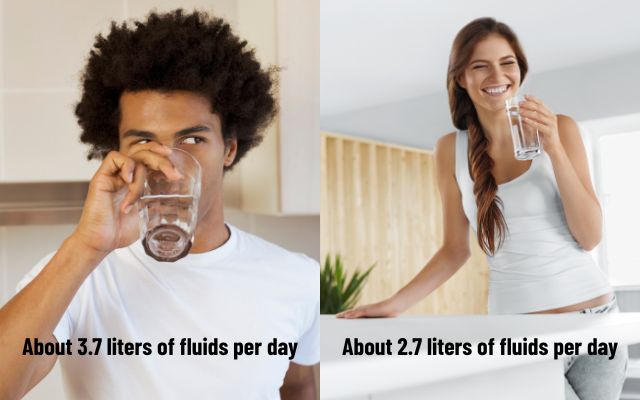
The adequate water intake in a day
How to Stay Hydrated
The best ways to stay hydrated are not only drinking more water, but also using many different methods.
Drink more water
Obviously, the best way in how to stay hydrated is to drink more water.
Let’s try to get adequate daily fluid intake. You’ve probably heard that 8 glasses a day. That will be a good general goal to achieve.
However, keep in mind that drinking too much water is not as good as you think.
When you drink a lot of fluid, your kidneys are unable to remove the excess.
Your blood's sodium content gets diluted. Hyponatremia is a serious condition that can kill you.
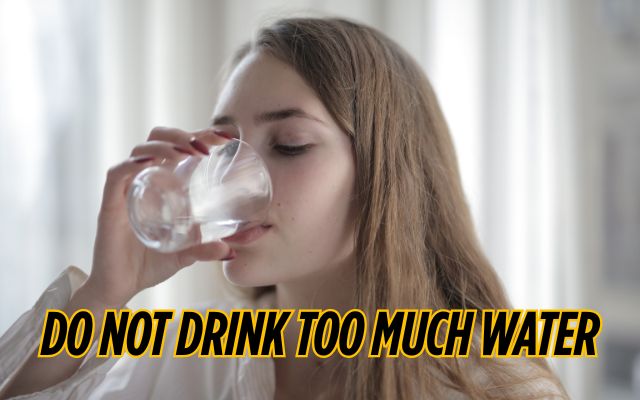
Do not drink too much water per day
Keep water accessible
When drinking water is easily accessible and nearby, you are more likely to reach and drink more. Water storage options include:
-
Carry a reusable water bottle and refill it during the day.
-
Place a pitcher of water in the refrigerator or on the counter.
Keeping water visible may encourage you to sip. Put water bottles where you spend a lot of time, such as your car or desk, so you're never without hydration.
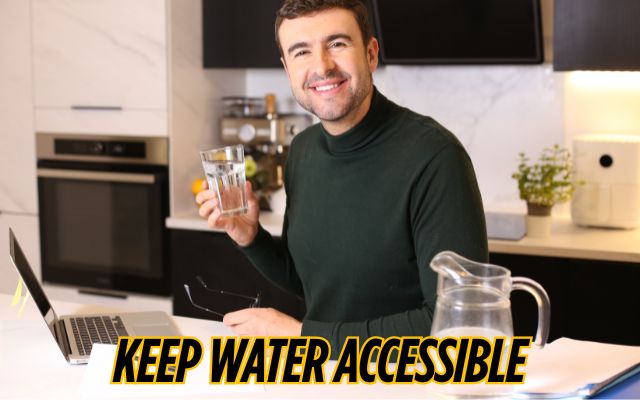
Place water where you spend a lot of time
Make water more attractive
If you are struggling to drink enough 8 glasses of water per day, you can make it more attractive to take in.
You could even be engrossed in drinking juice or soda when you're thirsty, but stay away from the desire.
Instead, improve your water with one of these methods:
-
Add flavor: Adding fruits and herbs to your water alters the flavor without adding sugar. Berries, citrus fruits (lemons, limes, or oranges), cucumbers, basil, and rosemary are all popular taste enhancers.
-
Add some sparkle: Bubbly water can provide a refreshing change of texture in your mouth. You can purchase unsweetened sparkling water or create bubbles using carbonation equipment.
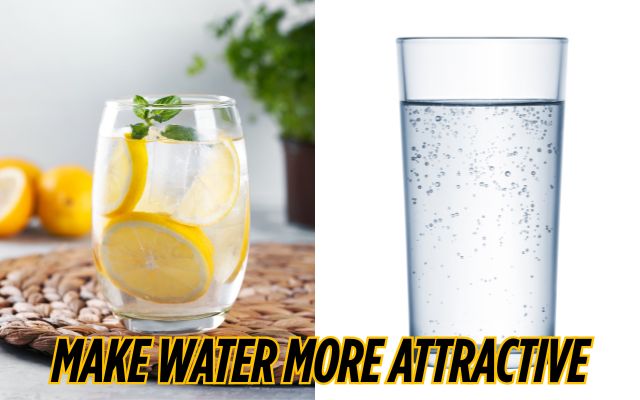
Tips to make water more compelling to drink
Add electrolytes to your water
Adding electrolytes to water improves hydration, especially during intense physical activity, hot weather, or illness, when vital minerals such as salt, potassium, and magnesium are lost through sweat.
These electrolytes are essential for fluid equilibrium, muscle and nerve function, and avoiding dehydration.
While widely available in commercial products, they can also be found in natural sources such as a pinch of salt, lemon juice, or coconut water.
They help with more efficient water absorption and speedier recuperation.
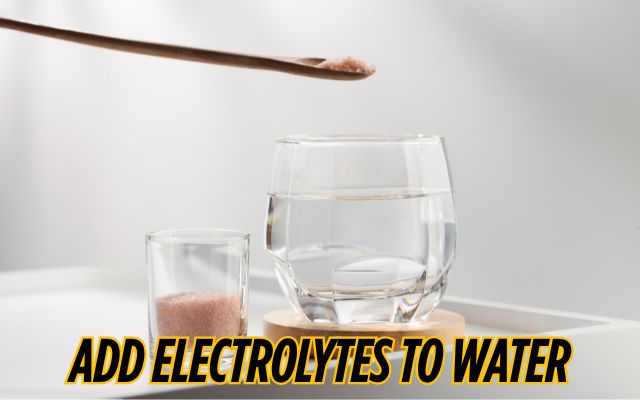
Adding electrolytes to water improves hydration
Eat water-rich foods
Apart from drinking water, you can provide moisture to your body by eating water-rich food.
Select fruits and vegetables that contain 90 - 100% water, like cabbage, cantaloupe, cucumber, lettuce, watermelon, etc.
If you do not like to eat vegetables or live in a chilly climate, broths, soups, and stews can help you stay hydrated.
However, opt for low-sodium foods because eating too much salt might lead to dehydration.

Take in water-based food
Minimize alcohol intake
Alcohol is a diuretic, meaning it depletes the body's fluids.
When you drink alcohol, you may find yourself needing to urinate more frequently.
If you don't drink enough water when consuming alcohol, you risk becoming dehydrated.
Avoiding alcohol completely is the most effective approach to stay hydrated.
However, if you decide to drink, drink at least one glass of water for every alcoholic beverage.
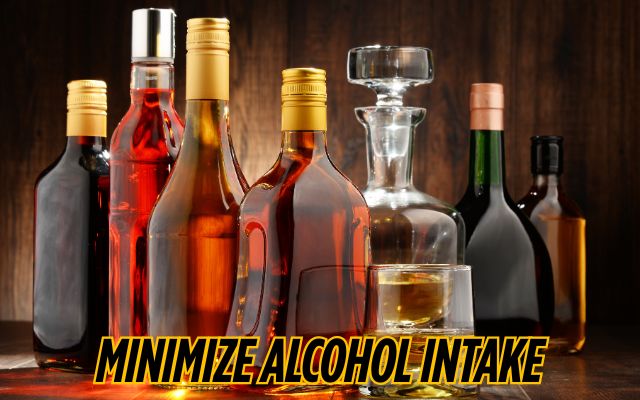
Limit alcohol consumption
Add a little salt
A pinch of salt helps retain fluids, maintains electrolyte balance, and supports muscle and nerve function.
For an easy hydration enhancement, try homemade electrolyte water (water, salt, and lemon or honey). Just remember, moderation is crucial.
Too much salt can have serious health consequences, so always see your doctor if you have problems such as high blood pressure.
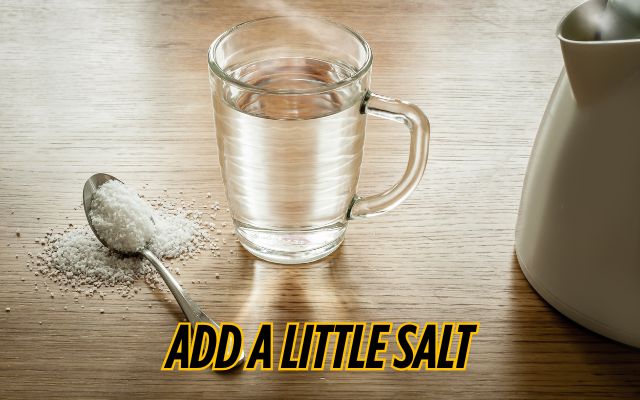
Adding a little salt to stay hydrated
Read more:
Common Symptoms of Dehydration
Dehydration occurs when your body loses more fluids than it takes in.
This can result from not drinking enough water, excessive sweating, especially in hot climates or during intense physical activity, or losing fluids rapidly due to illness, such as diarrhea or vomiting.
Therefore, knowing the symptoms of dehydration is vital. You can determine when you need to drink water.
Typical signs of dehydration include:
-
Confusion or difficulty concentrating
-
Dark-colored urine or infrequent urination
-
Dry mouth and cracked lips
-
Headaches or dizziness
-
Muscle cramps
-
Fatigue or low energy
-
Kidney stones
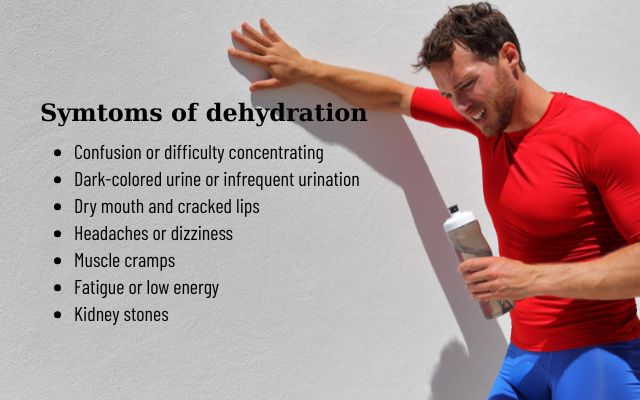
Signs of dehydration
Conclusion
As you can see, “How to stay hydrated” is not too difficult, and there are many simple ways to provide fluids to the body. Try to drink enough 8 glasses per day. The last thing you should remember is to drink adequate water, and not drink too much if you do not want to get trouble with your health.

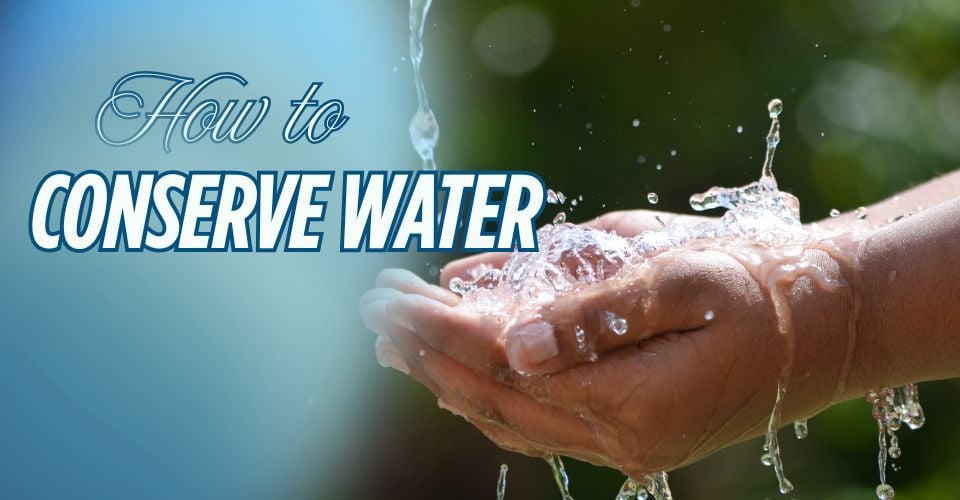
![Worst Droughts in US History: What We Can Learn from Them? [List] Worst Droughts in US History: What We Can Learn from Them? [List]](https://assets.weather365.com/images/1751538966_worst-droughts-in-us-history-1.jpg)
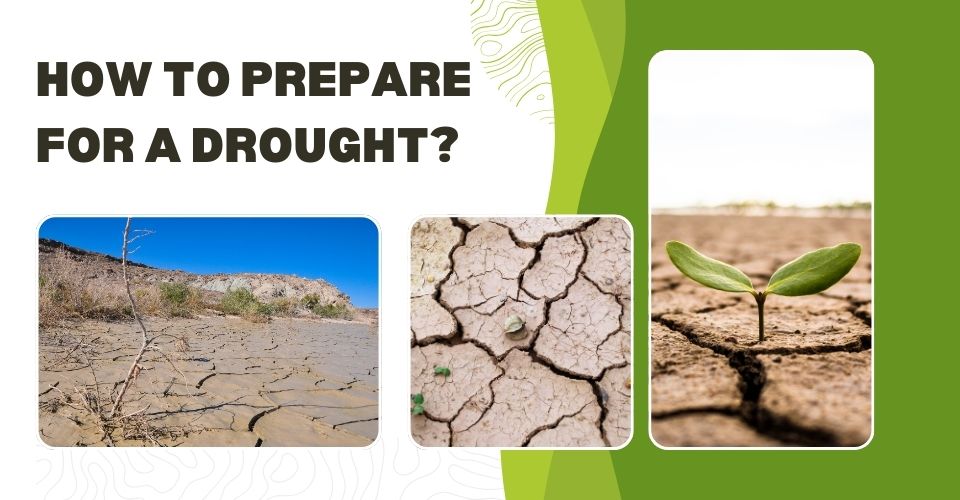
0 Comment
Leave a comment
Your email address will not be published. Required fields are marked *